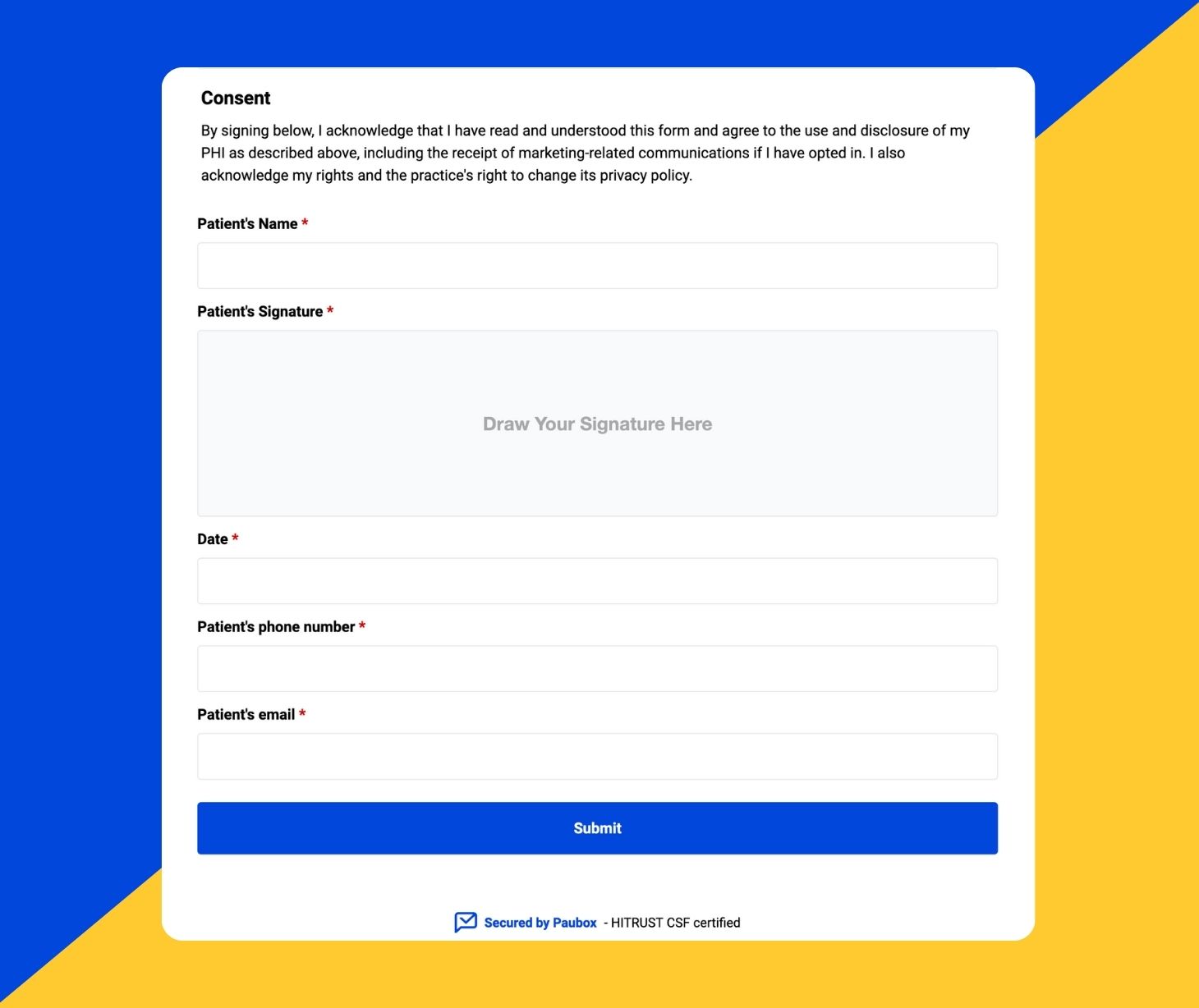
Using HIPAA forms for billing ensures compliance with regulations, protects patient privacy, and fosters trust. These forms clarify how patient information will be used, reducing legal risks and unauthorized disclosures. They also empower patients by giving them control over their data while helping healthcare providers maintain ethical and efficient billing practices.
Purpose of HIPAA authorization for billing
HIPAA requires healthcare providers to obtain patient consent before using or disclosing protected health information (PHI) for purposes outside of treatment, payment, or healthcare operations (TPO). While billing typically falls under "payment" and doesn’t require explicit authorization, some specific scenarios may necessitate patient consent: Authorization may be required before disclosing PHI to an insurance underwriter.
See also: Can healthcare providers share PHI with debt collectors?
Components of a HIPAA compliant authorization form
To authorize billing activities, the form should include the following:
- Patient information: Full name, address, and date of birth.
- Purpose of authorization: Specify that the PHI will be used for billing or payment processing.
- Description of PHI: Detail what information will be disclosed (e.g., billing codes, insurance details).
- Recipient information: Identify the entity authorized to receive the PHI.
- Expiration date: Indicate when the authorization will expire or specify "until billing is completed."
- Right to revoke: Inform the patient of their right to revoke the authorization in writing at any time.
- Signature: Include the patient’s signature and date of signing.
Related: Collect patient data securely with Paubox Forms
Best practices
- Clear communication: Educate patients about the use of their information for billing.
- Secure storage: Store signed authorization forms securely in compliance with HIPAA standards.
- Verify recipients: Confirm the identity of third-party entities receiving PHI to prevent unauthorized disclosures.
See also: How to develop a HIPAA compliant authorization form
FAQs
Can patients refuse to sign a HIPAA form for billing?
Yes, patients have the right to refuse. However, this may impact the provider's ability to process billing or submit claims to insurance, and providers should explain the implications of refusal.
How should providers handle HIPAA forms if a patient disputes a bill?
Providers must handle disputes carefully, ensuring any disclosure of PHI during the resolution complies with HIPAA.
Subscribe to Paubox Weekly
Every Friday we'll bring you the most important news from Paubox. Our aim is to make you smarter, faster.



